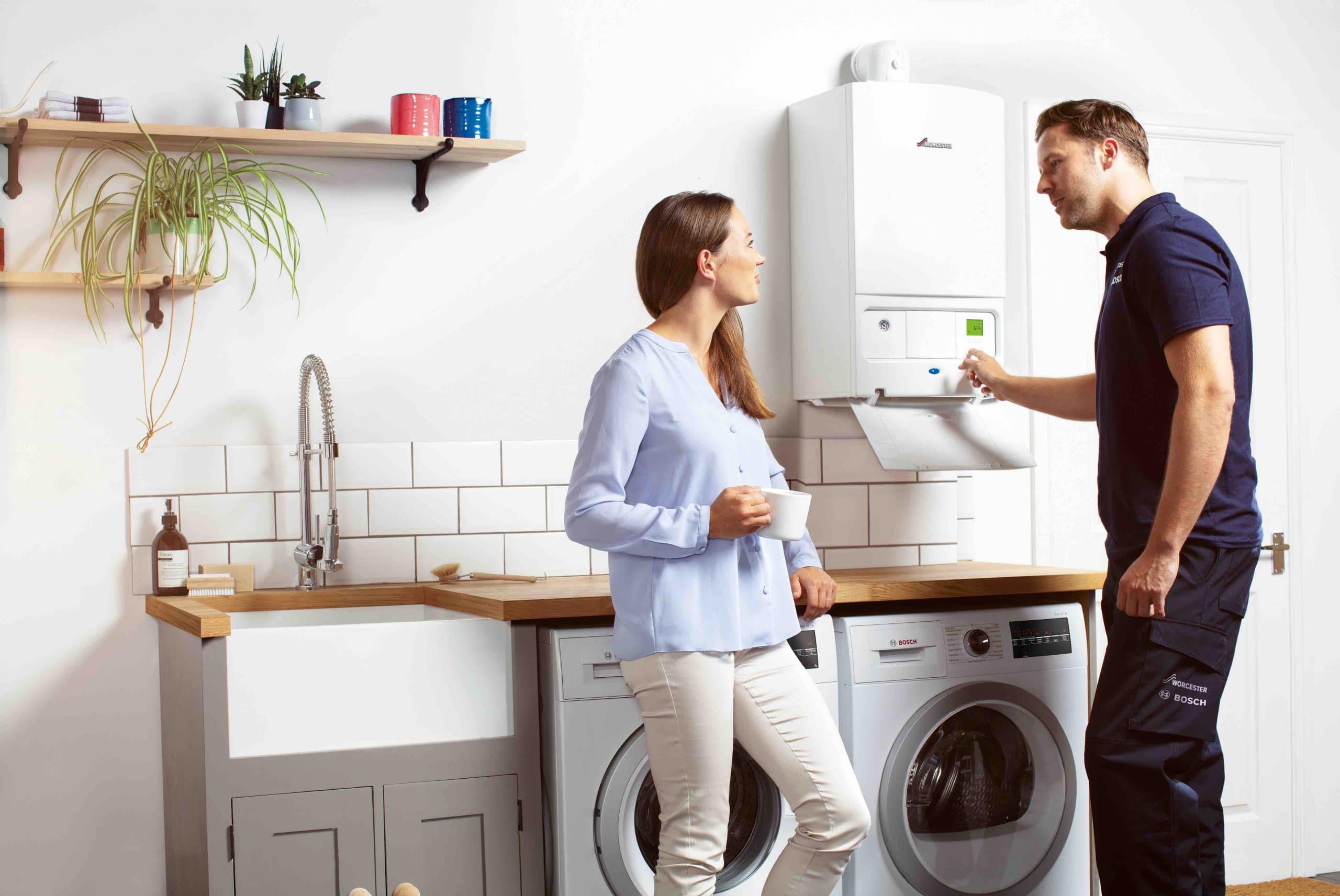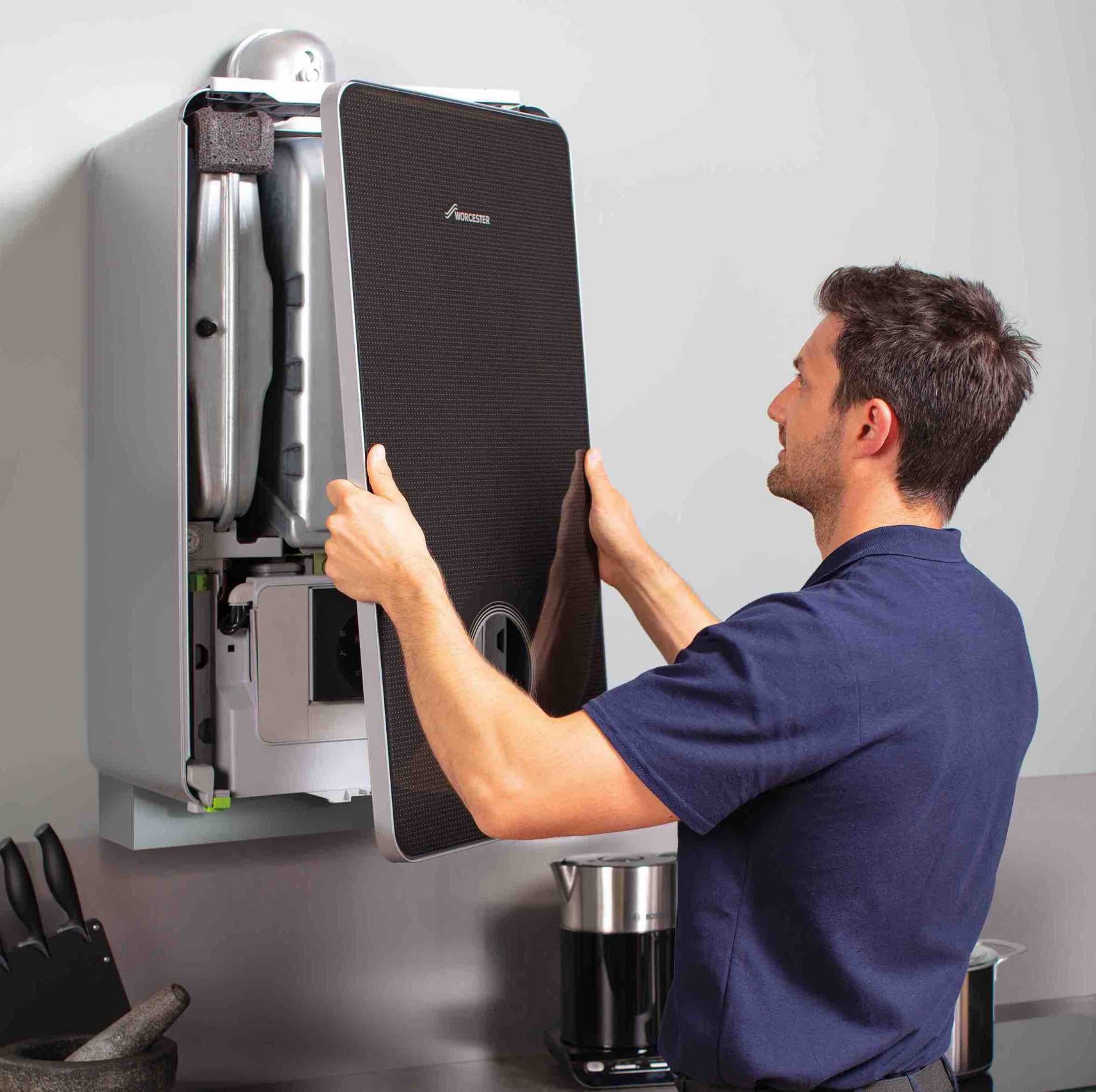How much is a new boiler?
What is the cost of a replacement boiler in 2024?
Whether you’ve just moved home, are planning an extension, or are putting in a new bathroom soon, the question of replacing your boiler will inevitably be raised. Costs can be difficult to pin down as there are many factors to consider, including the type and make of the boiler, required capacity, and your current setup.
Your boiler is probably the most critical item to ensure your home’s comfort, so it’s essential to get it right when it comes to replacing your boiler. Prices vary greatly based on the many different brands, sizes and types available, ranging from around £500 to £2,500. It’s estimated around half of what each of us spends on our energy bills is from boiler use, though, so a new, more efficient unit will mean you recoup a portion of that outlay through energy savings, and for a detached four-bedroom house, this could equate to over £300 a year.
The type of boiler most appropriate for your home will depend on your hot water demands, property size, and the available water pressure. The most popular replacement in the UK is a gas combi boiler. A combi boiler provides heating and hot water instantly on-demand from a single unit, typically wall-hung. They are efficient and space-saving as they don’t require a separate hot water storage tank. However, for larger homes with multiple bathrooms, a regular conventional or condensing system boiler is a better option, as a combi can only deliver limited water pressure and may reduce if more than one hot tap is used; the pressure will weaken. Regular or system boilers store hot water in a separate water cylinder and can serve more than one hot tap at a time.
Boiler size refers to power output and is measured in kilowatts per hour (kWh), so the greater the kW, the greater the boiler’s capacity. Typically, boiler manufacturers offer a range of different sizes, and your engineer will be able to help you determine the size you need, considering the number of bathrooms and radiators that need to be served on your property. Seeking expert advice is essential here. A boiler with too low a capacity will struggle to meet the heating demands of your home, resulting in a shortfall in your radiators and taps. Conversely, a too-powerful boiler won’t provide any extra benefits. Although modern boilers usually guard against unnecessary fuel, you’ll still have spent significantly more on a higher-capacity model you don’t need. The only time to consider scaling up is if you’re planning a home extension that will include additional baths or showers.
Regarding installation costs, a straightforward upgrade to a newer version of your current boiler type is undoubtedly the most economical way to go. If the engineer needs to change the pipework or alter the boiler’s location, this will increase the overall cost. Upgrading to a combi boiler is a common request but can be complex and expensive. Along with completely removing your old boiler and water tanks, newly upgraded pipework must be fed to the incoming boiler’s new location. So to convert from a regular boiler to a combi boiler, you’re looking at an additional £1,000, taking the average boiler replacement cost range from £1,500 – £3,000, up to £2,500 – £4,000.
Depending on where you are moving your boiler, you may also need to factor in an extra £300 – £600 for a vertical flue. This large pipe leads from the boiler, routing condensation and flue gases outside. A flue can come out of the wall horizontally, but if the only option is vertically through a roof, it requires more work and, therefore, more costs. It would be best to consider whether you need a plume kit (around £100) to extend your flue away from a window, door, or neighbouring property. Your engineer can advise here to ensure you comply with Gas Safe regulations. Also, bear in mind that some older heating systems may be using gas piping of 15mm width, which will need to be upgraded to 22mm to meet current regulations. Any old lead pipes will need to be replaced with copper. Typical costs to get this sorted are £250 – £400. Finally, additional optional extras are included in any calculations, such as a chemical system flush, upgraded warranty, and magnetic boiler filter.
So, costing a boiler replacement is not an exact science, but the best way to protect against spiralling costs is to choose a reliable installation company, ask lots of questions, and ensure you get a fixed price with no surprises, plus a full parts and labour warranty.
At MHL, we’ve been replacing boilers for over 30 years and can promise expert advice and reassuring transparency.
For a quick online boiler quote, CLICK HERE or call 0800 061 4567 to discuss your needs.


